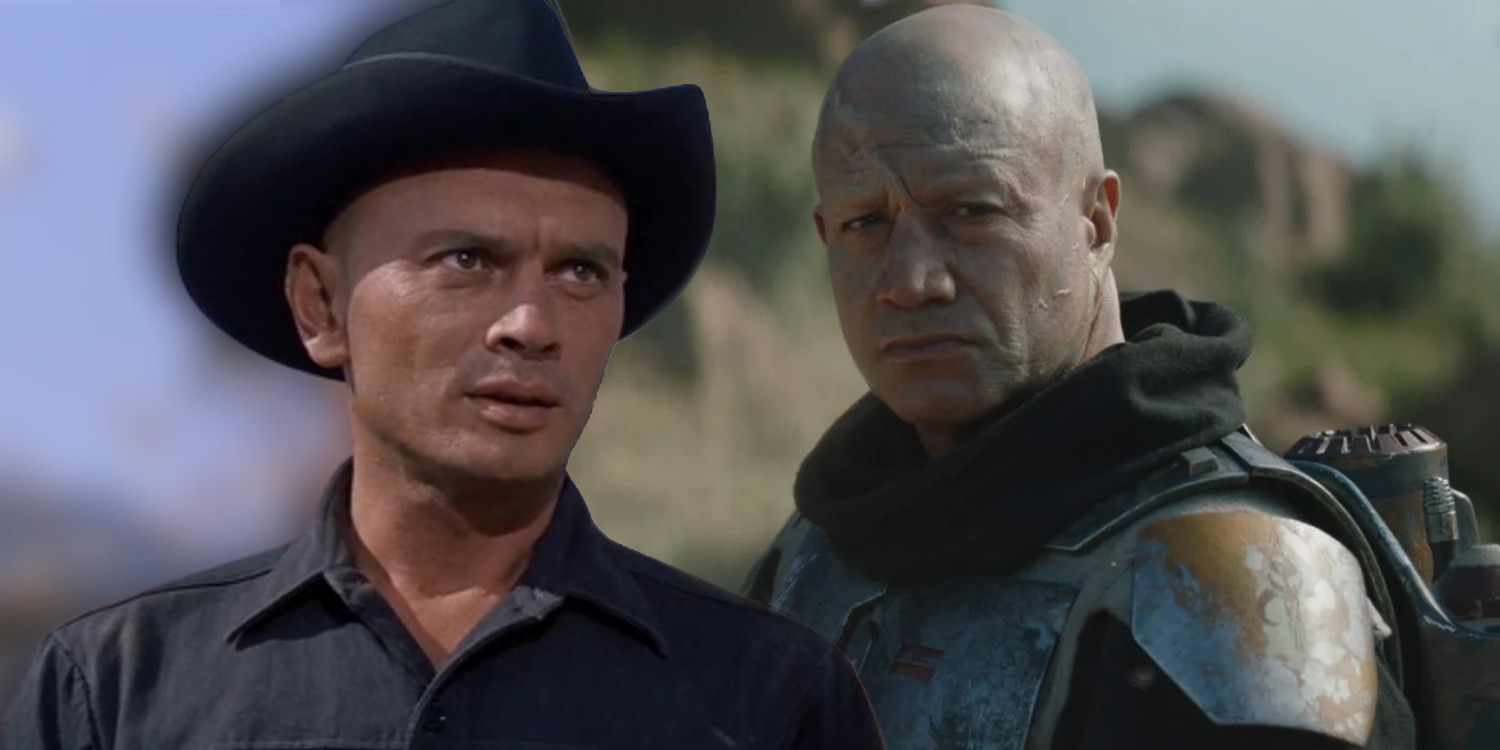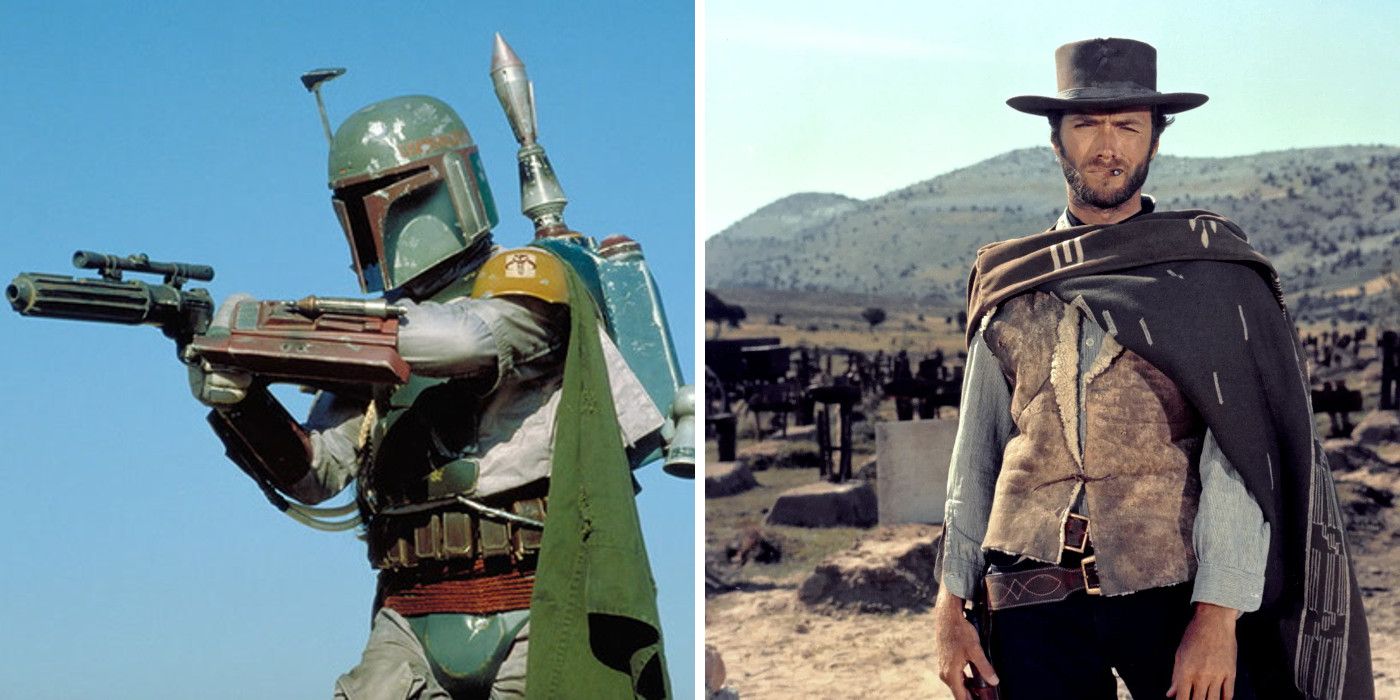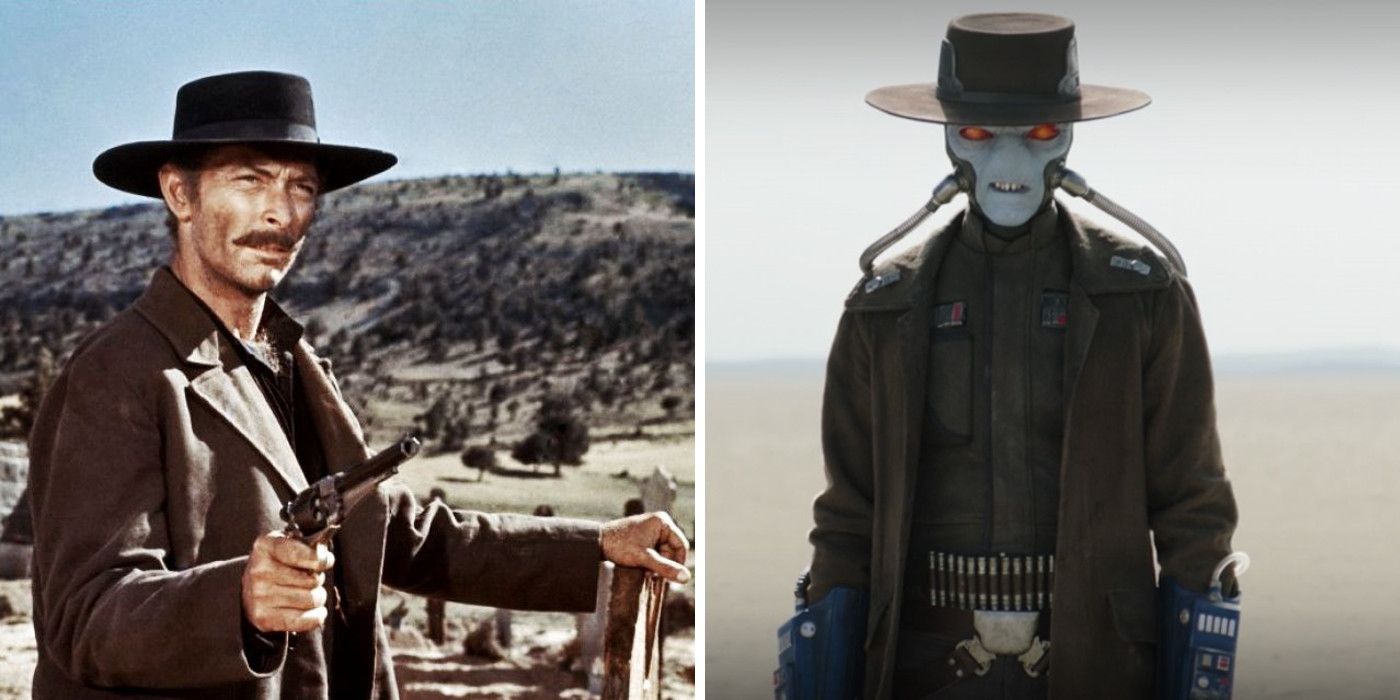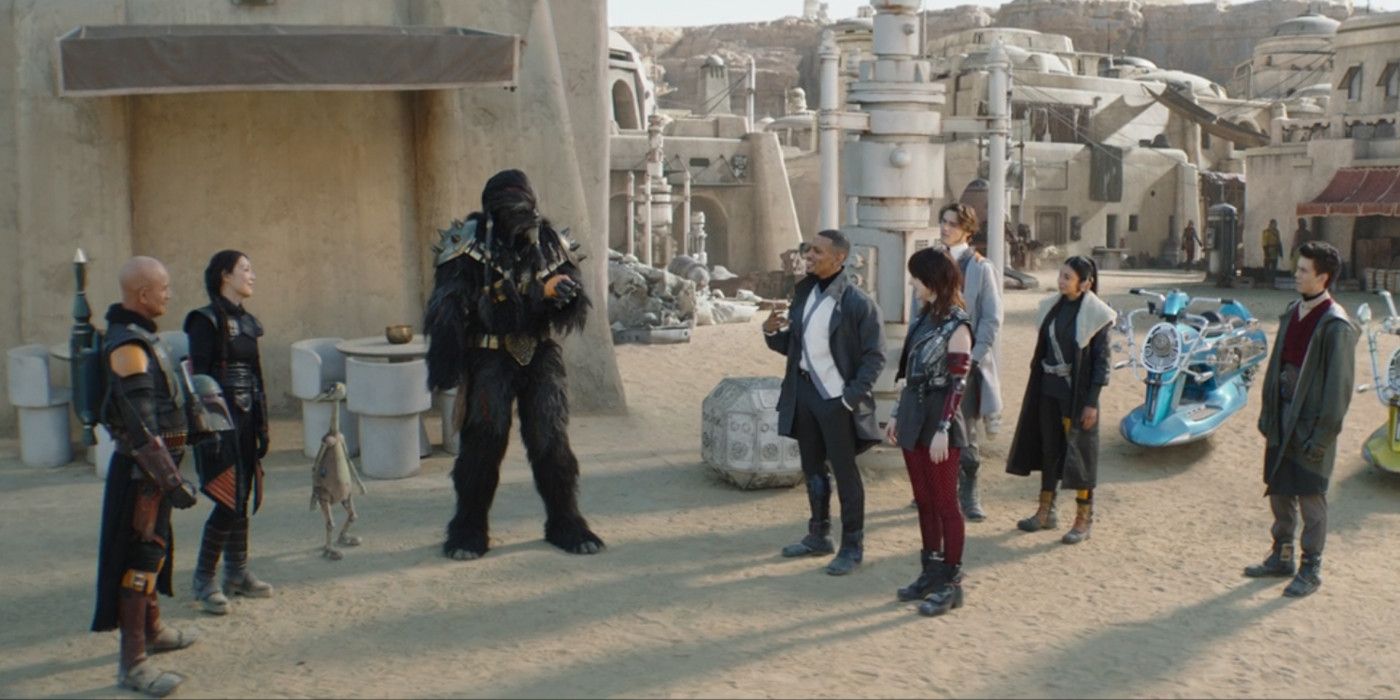Warning: The following contains SPOILERS for The Book of Boba Fett finale.
The Book of Boba Fett failed to please some Star Wars fans because the story forced him into an adaptation of The Magnificent Seven, which is the wrong sort of Western for the mysterious bounty hunter to headline. While various bits of Star Wars media have given Boba Fett more definition as a character over the past four decades, the popular perception of the character remains that of a faceless drifter with an unclear past and an uncertain future. In this Boba Fett might be likened to Clint Eastwood's Man With No Name from Sergio Leone's Dollars Trilogy, who served as an inspiration for Boba Fett according to actor Jeremey Bulloch, who originated the role of Boba Fett in The Empire Strikes Back.
The Star Wars setting is a mythological gumbo, born of multiple elements borrowed from a variety of genres. While nominally a science-fiction franchise, the series is notable for its dependence on mysticism, with the Jedi combining elements of the samurai Bushido code and European depictions of wizards. George Lucas was also highly influenced by the great Japanese filmmaker Akira Kurosawa, with the first Star Wars movie, A New Hope, borrowing heavily from Kurosawa's The Hidden Fortress, with a storyline centering around the rescue of a princess, who is also the leader of a rebel army. Later Star Wars films also referenced Kurosawa's films.
Given that, and the equal amount of inspiration Star Wars has drawn from Westerns, it was perhaps inevitable that Star Wars should pay homage to Kurosawa's The Seven Samurai, which was also adapted into the Western The Magnificent Seven in 1960. The Book of Boba Fett season 1 finale spins a similar story, with a group of mercenaries and gang members, led by Boba Fett himself, taking a stand against the sinister Pyke Syndicate and their efforts to take over the planet of Tatooine as part of their spice running operation. The series' finale left many Star Wars fans unsatisfied for a number of reasons (including several bad action scenes) but most of the complaints centered around the development of Boba Fett from a hard-boiled hired gun into an underworld kingpin and the belief that Boba Fett works better as a lone wolf renegade than as the leader of an honorable outlaw gang.
The Book of Boba Fett's Western Roots
For all the genres that Star Wars has borrowed from, it may owe the greatest debt to the Western. With storylines centering around civil wars and the frontier of deep space, the parallels to American history in the Old West era are inevitable. The style was also applied to the characters and their costumes, with Harrison Ford's Han Solo setting the mold for every scoundrel space cowboy with a hidden heart of gold that followed.
The Book of Boba Fett continued this trend, as it detailed Fett's life following his apparent death in Return of the Jedi and paid homage to a number of classic Westerns in doing so. Fett was adopted into a Tusken Tribe in an episode that seemed a blend of both Dances with Wolves and The Great Train Robbery. This was fitting as the core concept of Boba Fett's character was lifted from the Spaghetti Westerns of Sergio Leone and Clint Eastwood's portrayal of a nameless, tight-lipped bounty hunter with a strict code of honor. The color scheme of Fett's armor and cape in the original trilogy were also directly inspired by the costume Clint Eastwood wore in A Fist Full of Dollars.
By contrast, the Boba Fett of The Book of Boba Fett seems to have evolved into a stand-in for one of the heroes of The Magnificent Seven. The most obvious candidate for comparison is Chris Adams (Yul Brynner), the bald-pated reluctant leader of the Seven, who tried to put his violent past behind him only to find himself forced into action by his code of honor. Yet Boba's flashbacks to his violent past also invite comparison to Lee, the PTSD-suffering veteran played by Robert Vaughn. In either case, fans of the classic Fett found this development antithetical to their vision of the character, who they felt should have been one of the hired guns brought in to defend Mos Espa, rather than the leader of the unlikely heroes trying to build a home for himself.
Cad Bane's Connection To The Good, The Bad, And The Ugly
Boba Fett's status as Star Wars' Man With No Name seems even more obvious when one considers the character of Cad Bane and his backstory. While created for the Clone Wars animated series, Cad Bane was based on an idea George Lucas had for a sinister gunslinger, who made it into the concept art of the original trilogy but didn't make it onto the screen. The concept was fleshed out by director Dave Filoni and Henry Gilroy, who based Cad Bane on Angel Eyes, the "Bad" bounty hunter played by Lee Van Cleef in The Good, The Bad and The Ugly.
The Book of Boba Fett confirmed a largely theoretical history between Cad Bane and Boba Fett, wherein Bane took Boba under his wing as a means of repaying the debt he felt he owed Jango Fett, who had mentored him when he was first starting out. The series also confirmed the canonicity of a duel between the two bounty hunters, which would have been part of a scripted Clone Wars storyline that was never produced due to the series' sudden cancellation. While The Book of Boba Fett ended with a duel between the two former allies in a sequence that was heavily inspired by Sergio Leone's direction, most Fett fans felt it didn't make up for Fett's out-of-character actions earlier in the season.
Book of Boba Fett Was The Magnificent Seven Instead Of The Dollars Trilogy
It seems unlikely that the arguments over The Book of Boba Fett will be settled anytime soon. While the themes of redemption and community are as much a part of Star Wars as space cowboys and magic knights, this will not stop some fans from believing that Boba Fett cannot evolve as a character and must remain an eternal loner and man of mystery, much like how some fans cannot forgive Luke Skywalker's decision to exile himself in the sequel trilogy. In many viewers' eyes, therefore, connecting Boba Fett to the iconic Dollars Trilogy in a more obvious manner would have been a much more successful approach than the Magnificent Seven-style team-up that actually made it to screen. Despite this debate, however, The Book of Boba Fett finale largely succeeds as an adaptation of The Magnificent Seven, even if some fans do not believe Boba Fett should have been leading the team or had an interest in playing hero beyond being paid.
The Book of Boba Fett is available on Disney+




